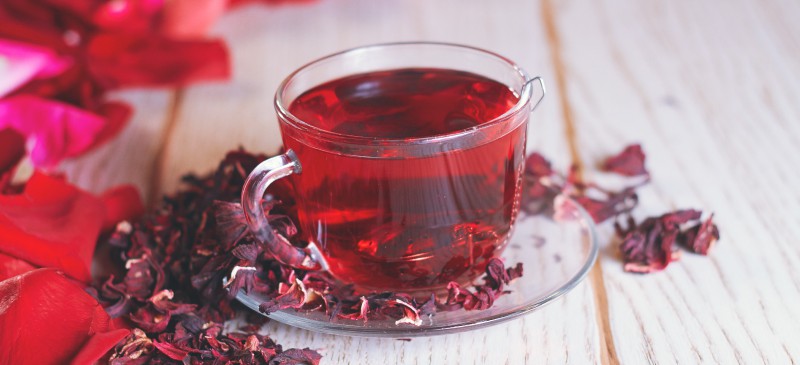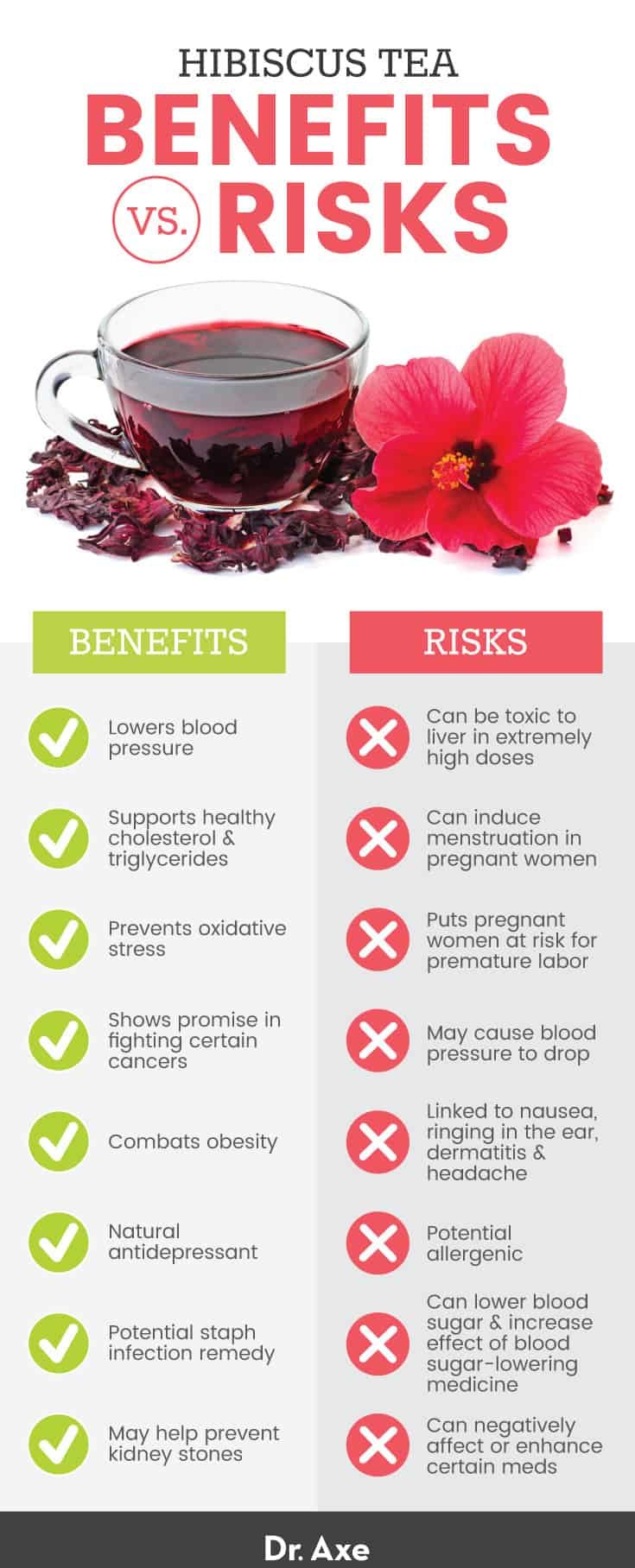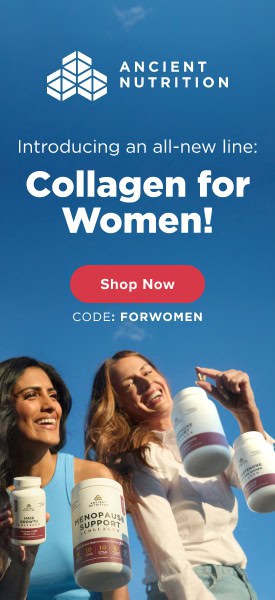This Dr. Axe content is medically reviewed or fact checked to ensure factually accurate information.
With strict editorial sourcing guidelines, we only link to academic research institutions, reputable media sites and, when research is available, medically peer-reviewed studies. Note that the numbers in parentheses (1, 2, etc.) are clickable links to these studies.
The information in our articles is NOT intended to replace a one-on-one relationship with a qualified health care professional and is not intended as medical advice.
This article is based on scientific evidence, written by experts and fact checked by our trained editorial staff. Note that the numbers in parentheses (1, 2, etc.) are clickable links to medically peer-reviewed studies.
Our team includes licensed nutritionists and dietitians, certified health education specialists, as well as certified strength and conditioning specialists, personal trainers and corrective exercise specialists. Our team aims to be not only thorough with its research, but also objective and unbiased.
The information in our articles is NOT intended to replace a one-on-one relationship with a qualified health care professional and is not intended as medical advice.
Hibiscus Tea: The Antioxidant ‘Therapeutic Agent’ You Should Be Drinking
September 24, 2018

I think C.S. Lewis may have been speaking directly to me when he said, “You can never get a cup of tea large enough or a book long enough to suit me.” One of the teas that crosses my mind reading that is the powerfully beneficial hibiscus tea.
Hibiscus tea (sometimes referred to as “sour tea”) is one of those incredible, yummy teas that is high on the list of drinks to keep around the house, like matcha green tea and yerba mate. That’s because hibiscus tea benefits are so numerous — the large amount of antioxidants found in this beverage earn it the status of a “therapeutic agent” for a number of issues, according to an article published in the Journal of Experimental Pharmacology in 2012. (1)
Find out below how to include hibiscus tea on your list of must-have teas.
Health Benefits
1. Lowers Blood Pressure
There are a few foods that lower blood pressure to take notice of, particularly if you are at risk for hypertension. Hibiscus tea makes that list with glowing reviews. Several studies have found it to lower blood pressure significantly, even in patients with certain health conditions that increase the risk of high blood pressure.
A 2013 review by the University of Arizona discovered that hibiscus tea is used in 10 or more countries as normal treatment for hypertension without any reported adverse events or side effects — except in extremely high doses. The study led these researchers to state that “extracts of [hibiscus] are promising as a treatment of hypertension.” They did point out, however, that high-quality studies (known in the scientific community as the “gold standard”) are needed to see the specific interactions of hibiscus tea on high blood pressure. (2)
It does seem to be the case that hibiscus can lower blood pressure in prehypertensive and mildly hypertensive animal and human models. (3, 4)
Of significant note is the fact that these results extend to diabetic patients. After about four weeks, researchers conducting multiple trials have found that blood pressure is positively impacted by daily drinking hibiscus tea. One study specifically mentions three glasses of tea each day as the chosen dosage. (5, 6)
A study in Nigeria discovered hibiscus tea to be more effective than hydrochlorothiazide, a common blood-pressure lowering medication, at decreasing blood pressure. The most significant finding was that hibiscus tea, unlike its study counterpart, hydrochlorothiazide, did not cause electrolyte imbalance. (7)
2. Supports Healthy Cholesterol and Triglycerides
Blood pressure isn’t the only heart disease risk factor for which hibiscus tea benefits you. It may also help people with dyslipidemia manage their cholesterol and high triglycerides.
These two heart disease risk factors are part of the greater cluster of symptoms known as metabolic syndrome, which also points to an elevated risk of diabetes and stroke. In a study published in Phytomedicine, scientists recommend the use of hibiscus extracts to naturally lower cholesterol and triglyceride levels in patients with metabolic syndrome. (8)
Like with blood pressure, hibiscus tea’s ability to reduce high “blood lipids” also extends to those with diabetes. A 2009 study had diabetes patients consume hibiscus tea twice a day for a month and found a significant increase in HDL (“good”) cholesterol and decrease in overall cholesterol, LDL (“bad”) cholesterol and triglycerides. (9)
3. Prevents Oxidative Stress
Like most healthy teas, hibiscus is full of antioxidants that fight free radical damage caused by poor diet and constant exposure to dangerous chemicals. These are found mainly in the anthocyanins of the plant, the natural pigments that give this flower its red color, as shown in rat models. (10)
A small human research study discovered that supplementing with hibiscus tea increased antioxidant load in the bloodstream and reduced compounds that can contribute to oxidative stress that damages cells. Because subjects had elevated amounts of hippuric acid, the conclusion of the study suggests that the polyphenols (antioxidants) of hibiscus must have been significantly transformed by the gut microbiome. (11)
4. Shows Promise in Fighting Certain Cancers
Probably due, at least in part, to the antioxidants in hibiscus tea, it has been the subject of some introductory cancer research. While, like most natural cancer treatment research, this idea is in its infancy, there is some evidence to support hibiscus tea’s anticancer power.
In a lab, hibiscus extracts cause apoptosis (cell death) in leukemia cells. (12, 13) While the mechanisms behind this aren’t clear yet, this could be a promising step in the fight against leukemia, which affects about a quarter of the children and adolescents currently living with cancer.
The same results seem to occur when eight different kinds of gastric carcinoma cells are exposed to hibiscus tea extract, according to research conducted at the Institute of Biochemistry and Biotechnology at Chung Shan Medical University in Taiwan. (14)
5. Reduces Obesity and Related Risks
Put some red hibiscus tea next to the bottle of red wine if you’re looking for a drink to help reduce obesity risk. While those antioxidants are working to protect your cells, those and other compounds found in hibiscus have the potential to encourage weight loss and minimize other related risks, as shown in research on rats. (15)
Human and animal studies have found a link between hibiscus tea and an increased metabolism. Hibiscus extract may even inhibit you from absorbing as much starch and sucrose as you might from a typical meal. (16, 17)
Drinking hibiscus tea at least once a day may also help you fight insulin resistance, a common marker of prediabetes and various other conditions. In fact, it can even help in maintaining healthy blood sugar in diabetes patients, which means it may help reduce every symptom in the metabolic syndrome cluster. (18)
Another disease connected to obesity (and diet) is non-alcoholic fatty liver disease (NAFLD). This disease is identified as a buildup of extra fat cells within the liver, not caused by alcohol use. Commonly understood causes of NAFLD include obesity, poor eating habits, diabetes and dyslipidemia.
In both animals and humans, studies have shown hibiscus tea benefits the liver by reducing the risk of this fatty buildup, which can potentially lead to cirrhosis, liver cancer or liver failure if left untreated. (19, 20)
6. Natural Antidepressant
If you suffer from or are at risk for depression, you may want to consider trying hibiscus tea as one natural way to combat these sometimes debilitating signs of depression, such as fatigue, feelings of hopelessness, loss of interest in hobbies and more.
This, too, is a brand new area of study, but animal studies that examine the improvement in depression symptoms have found that hibiscus flowers have specific bioflavonoids that might help as one natural remedy for depression. (21, 22)
7. Potential Staph Infection Remedy
At least one type of hibiscus displays antibacterial power, too. At least one lab study has found that extracts of Hibiscus rosa sinensis, a less common but still useful hibiscus plant sometimes used to make tea, might have serious MRSA-killing potential. (23)
MRSA is a bacteria that causes over 90,000 staph infections in the U.S. each year. Prevention and treatment of staph infection are vital, as they are linked to serious problems like abscesses, sepsis and pneumonia. (24)
8. May Prevent Kidney Stones
Because it functions as a diuretic, hibiscus tea has also turned the heads of those studying the health of the kidney and urinary systems. Initial animal testing suggests that hibiscus tea presents what is known as an “anti-urolithiatic property,” meaning that it may lower the instance of compounds that form kidney stones. (25)

What Is Hibiscus Tea?
There are a variety of types of hibiscus used for tea, but the most common is the Hibiscus sabdariffa L. species. These flowers are deep red in color. Some people also use Hibiscus rosa sinensis, which is what many people think of when they hear “hibiscus,” a broad-petaled flower that comes in a range of colors.
Traditional hibiscus tea is made from dried parts of the hibiscus plant, most often the calyx, or the protective layer around the actual flower part of the plant.
An eight-ounce glass of hibiscus tea contains no calories and a few trace minerals (before sweeteners are added), but not a significant amount of any nutrient to break the 1 percent threshold of what you need each day. (26) In North Africa and Southeast Asia, where the drink originates, it is served both hot and cold. Hibiscus tea pairs well with raw honey as a natural sweetener.
There are a variety of drinks that may be made from the hibiscus plant, including red sorrel, agua de Jamaica, Lo-Shen, Sudan tea and Karkade.
Related: Top 7 Benefits of Green Tea: The No. 1 Anti-Aging Beverage
Risks and Possible Side Effects
There are some minor side effects and risks to consider when drinking hibiscus tea.
Hibiscus tea is toxic to the liver in extremely high doses. Toxicity was seen at such high doses, however, that it would probably be difficult to consume that much in tea form. (27) Most sources recommend three to four eight-ounce glasses of hibiscus tea daily, which seems like a reasonable amount to avoid adverse effects.
Of great concern is the potential effect hibiscus tea has on pregnant women. Pregnant women should never drink hibiscus tea or take hibiscus products, as it can cause “emmenagogue effects.” This means it can induce menstruation.
While this could potentially be helpful to women with irregular periods — although this has never been studied — it also means that pregnant women drinking hibiscus tea could experience premature labor. (28) Generally, it’s not known whether or not hibiscus tea is safe for nursing mothers, who should also avoid drinking it until they discontinue nursing.
If you are pregnant, be aware that hibiscus may be on a label under “rose of Sharon” or “althea.”
How to Find and Make
Like most supplements, it’s important to purchase hibiscus leaves, powder or extract from trustworthy sources with a good reputation. Some experts suggest that, if you purchase hibiscus in extract form, it should be in an airless pump that hasn’t touched the air so you still get the full hibiscus tea benefits.
If you purchase dried hibiscus, you are actually getting the calyces of the plant, which surround the petals, rather than the petals themselves.
All hibiscus teas are caffeine-free, so feel free to try a variety of them to find your favorite.
It’s pretty easy to make your own hibiscus tea. After boiling water, place the dried calyces of the plant into the water and wait until it turns deep red. This will produce concentrated hibiscus tea, so then add about half the amount of water in cool.
Sweeten with raw honey or stevia to your desired taste when it’s warm, but not hot. Optionally garnish with mint or a slice of lime, and you’ve got a healthy, delicious beverage that can be served hot or cold. Some recipes recommend adding a cinnamon stick for flavor.
History
Around the world, hibiscus tea has been a favorite in many cultures for centuries. Although its popularity is increasing in the United States as more research supports hibiscus tea benefits for health, it is very popular in Mexico, Central America, parts of South America and the Caribbean.
In Panama, hibiscus is used to make saril or sorrel tea, a holiday drink flavored with ginger, cinnamon, clove, sugar and nutmeg. Egyptians and the Sudanese traditionally drink hibiscus tea at wedding celebrations. Bissap, a variation of hibiscus tea, is known as the “national drink of Senegal.”
This is also a popular addition to many European tea cabinets, although in Europe, it’s more common to find hibiscus as one ingredient in a mixed herbal tea.
Many countries use hibiscus tea in their traditional practices to treat a variety of illnesses. In traditional Chinese medicine, hibiscus leaves are used to topically treat herpes zoster, also known as shingles or a recurrence of chickenpox. (29)
In the book “Edible and Medicinal Flowers,” author Margaret Roberts even suggests that hibiscus tea sweetened with honey is an excellent hangover remedy. (30)
Precautions and Interactions
It is possible for hibiscus tea to interact with certain medications. For example, do not drink hibiscus while you are taking blood-pressure lowering medication unless expressly instructed to and monitored by your physician, as it may lower your blood pressure to dangerous levels.
Hibiscus can inhibit the actions of some medications that use what are called Cytochrome P450 enzymes, so see a doctor before beginning to drink hibiscus tea to ensure it will not interact negatively with any current prescriptions you may have. (31)
Patients on diabetes medications should probably also avoid hibiscus tea, as it can lower blood sugar levels and increase the effect of blood sugar-lowering medicine.
Hibiscus tea may impact the way your body metabolizes acetaminophen, although it’s not clear how significant this risk is.
People taking chloroquine for malaria should avoid drinking hibiscus tea, as it greatly diminishes how much of the medication your body can absorb. (32)
And, again, pregnant or nursing mothers should never drink hibiscus tea or take hibiscus-containing supplements.
Final Thoughts
- Hibiscus tea is a popular beverage around the world, served hot or cold and flavored in a variety of ways.
- The most well-known benefit of hibiscus tea is its ability to lower high blood pressure, which has been noted in several scientific studies.
- It is likely that it may also help to lower high triglycerides, cholesterol and blood sugar, as well as aid in managing healthy weight and preventing liver disease.
- Because it is rich in antioxidants, hibiscus extracts have been studied for their effects on cancer and found in a lab setting to cause cell death in leukemia and gastric cancer cells.
- Hibiscus tea is also being studied for its potential impacts on depression, MRSA and kidney stones.
- In extremely high doses, it can be toxic to the liver.
- Pregnant women should never consume hibiscus products, including tea, as they could prematurely induce labor.
- Hibiscus tea interacts with some medications, so consult with your physician before drinking hibiscus tea if you are taking any prescription medication.




